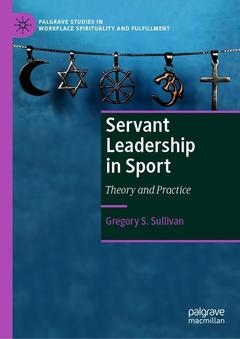Description
Servant Leadership in Sport, 1st ed. 2019
Theory and Practice
Palgrave Studies in Workplace Spirituality and Fulfillment Series
Language: English
Subject for Servant Leadership in Sport:
297 p. · 14.8x21 cm · Hardback
Description
/li>Contents
/li>Biography
/li>Comment
/li>
This book applies the principles of well-being theory and positive psychology to sport to establish a basis of servant leadership in sport organizations. Though the win-at-all-cost mentality is pervasive in sport, leading to acceptance of leadership styles more associated with controlling and extrinsic motivators, the author proposes need satisfaction based on three psychological needs: autonomy, competence, and belongingness, which leads to enhanced job performance, job satisfaction, and well-being. Through need satisfaction, servant leaders positively influence organizational outcomes by enabling followers' growth and well-being. This book will make a new contribution to sport management research in applying the principles of positive psychology to servant leadership and to sport.
Gregory S. Sullivan is Associate Professor and Director of the Professional Masters of Sports Administration (PMSA) program in the Department of Sports Administration, College of Business at Ohio University, USA. His research focuses on the role of positive psychology, servant leadership, and self-determined motivation in a sports context, both in the workplace and on the playing field.




